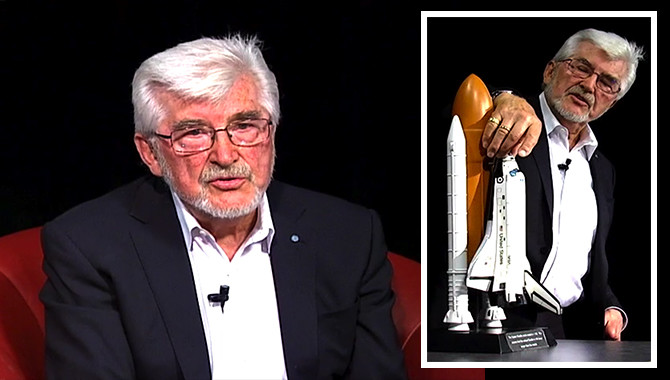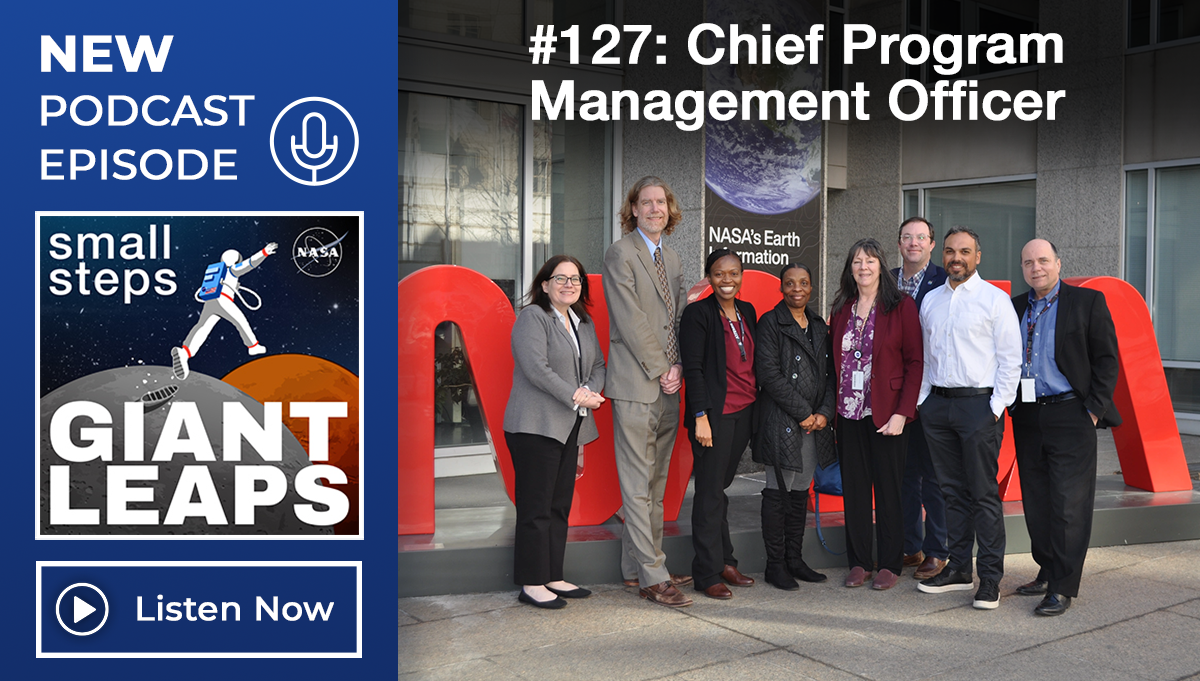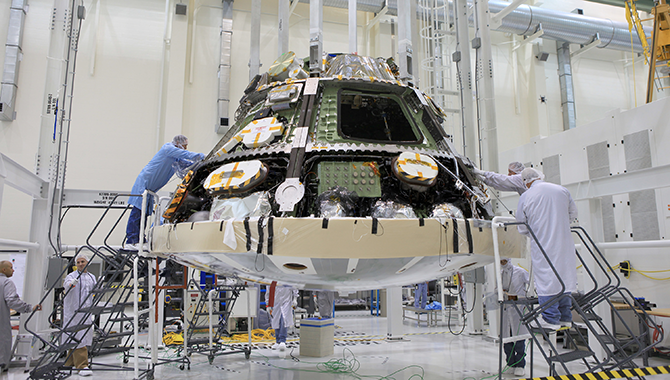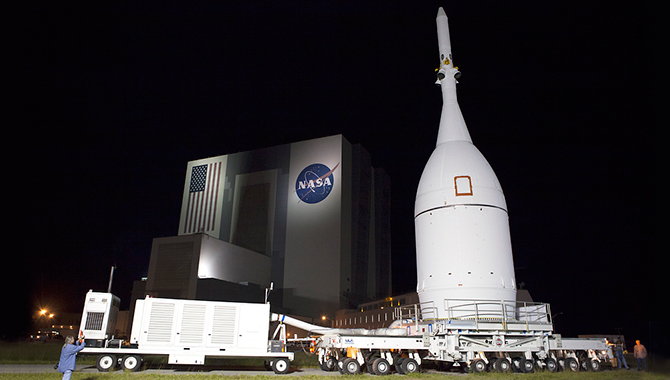
At a recent Virtual Project Management (PM) Challenge, presenter Bohdan (Bo) Bejmuk discussed how a system-level perspective can enhance project management efforts.
The Virtual PM Challenge, Building Your Systems Mentality: Using Systems Engineering & Integration to Solve Project Challenges, is now available to view online. People who were unable to attend the live event can watch as Bejmuk and moderator Ramien Pierre talk about the ways in which encouraging a systems mentality among project team members can be a powerful tool in mitigating risk and eliminating threats. They address the surprising fact that the most ingenious and elegant solutions to project challenges often arise not from a specific technical discipline perspective but from a systems-focused mindset.
APPEL News had the opportunity to follow up with Bejmuk about the event. He spoke further about how developing a system-level mentality can enhance the careers of current program managers, those who want to become program managers, and even people who just want to get more satisfaction—“And fun!” Bejmuk says—out of the work they do.
APPEL News: Thanks for talking with us about the Virtual PM Challenge and the benefits of cultivating a systems mentality. Was systems integration always your career goal?
Bejmuk: In 1972 I came to Rockwell International, which built the space shuttle for NASA, and I was fortunate that I was hired to work in the system integration area. So I started my career in aerospace essentially by looking at the whole system because that is what we did in this area where I worked. And that turned out to be very fortunate. It prompted me to have a broader view of everything I was doing. I quit looking through a narrow telescope; I suddenly started to look at the world in a 360-degree view. It made my career good—and more fun.
APPEL News: What had you planned to do before that?
Bejmuk: I was a mechanical engineer. I got my first degree from the University of Colorado, then I went to school at night—most of my education was at night because I had to work. I came to America in 1960 with no resources except an enjoyment of being in this new wonderful country. So I got my education at night and all I wanted was a job as an engineer.
APPEL News: In retrospect, is there anything you would have changed about your education or your career?
Bejmuk: During the Virtual PM Challenge, somebody asked me: “If you had a chance to give yourself any advice, what would it be?” I said, “Well, I sort of like the way my career went. I enjoyed it. But in retrospect, I should have tried to get an MBA early in my career.”
APPEL News: How is an MBA useful to a systems integrator?
Bejmuk: What an MBA does for you is it gives you additional breadth in your thinking. When you do system-level work, your thinking is broad. When you, in addition to that, get a business administration degree, that puts even more breadth into your thinking. That makes you a candidate for more general management. Instead of being a program manager, you can be president of the company, if that is your vision. What I’m saying is, if I had another pass at my life and my career, that’s the only thing that I would change. I would have expanded my breadth with something like an MBA.
APPEL News: In your experience, what is the hardest part of being a systems integrator?
Bejmuk: One of hardest things is to affect the thinking of people who are proud, who are professional, and who want to solve the problem in their own territory. I’ll give you an example. If you’re a highly professional, well-educated, experienced person who deals in stress analysis, and you have a problem where something on your project is breaking, the temptation is to try to fix it right at the source. Which means making the part stronger so it doesn’t break. That makes sense—but it might be that the really easy, quick, and cost-effective solution could be in a completely different place.
When you become a systems integrator with a systems mentality, you don’t just look at the area where the problem is occurring. You look at the whole system to see: “How can I mitigate the problem I’m working on by tweaking something away from the source?” Sometimes you find out that you cannot do that. It’s not practical. But in the Virtual PM Challenge, I gave three clear examples where we solved some major problems—things that threatened the existence of the space shuttle—by doing something away from where the problem occurred.
APPEL News: Your Virtual PM Challenge is now available online for everyone to watch. What’s one message you hope people take away from it?
Bejmuk: If you’re already a program or project manager, embracing a systems engineering mentality will make you more successful as a program manager. No question in my mind. If you are not a program manager yet but you aspire to be one, by embracing this system-level mentality I believe you will become a program manager quicker. And if you’re neither—you’re not a program or project manager and you don’t want to be one, you just want to enjoy your life as an engineer—embracing this system view will make you more productive. And it will make your job more fun. Because you’ll see more dimensions to whatever you’re doing than just what you would see in a narrow technical discipline. For me, it’s “win win win”: whether you are a program manager, you want to be one, or you don’t want to be one but you want career satisfaction, in each case this system-level thinking will make you more productive and successful and help you have more fun.
When you retire and look back at your career, you want to smile. Ever since I retired from Boeing in 2006, I look back at my career and I like it. It wasn’t always easy. Believe me, some things were very difficult. But I still look back at my career and smile.
APPEL News: Can you tell us a bit more about how embracing a system-level mentality can help advance a person’s career?
Bejmuk: We have this not very complementary expression: “stovepipe.” This refers to a fairly narrow view of the world through the eyes of your own technical discipline. If you’re an aerodynamicist, you practice and know aero. If you are a guidance and navigation specialist, you practice and know guidance and navigation. If you’re a structural dynamicist, you play in structural dynamics. You don’t always look broadly at what other people are doing and how you can harness their ability to solve your problem.
But if you develop this kind of system-level mentality, it really can have a very significant, positive influence on your career. Because you bring breadth immediately to your work. Think of it this way. As you get promoted, by necessity you become broader. You have to because you manage more areas, your team becomes bigger, it involves more technical disciplines. If you prepare yourself for that by developing this system-level thinking, you’re ready for it. You don’t have to become broader after you are promoted; you get promoted because you are broader in your thinking and understanding.
APPEL News: Do you have any advice for people who want to become systems integrators or want to develop this system-level mentality?
Bejmuk: I would recommend, especially early in the career, to do two things. First, in aerospace you have to be good at something from a technical standpoint. Practice it. Give it breadth by looking to the left and to the right. See what other disciplines are doing and how their work is interconnected with yours. The second thing is: early in your career, try to learn more about how the business is run. Whether you are on the government side or the contractor side, knowing how the business is run is very helpful. One more thing: initiative—being a self-starting person—is probably the most valuable attribute you can develop.
APPEL News: We heard that you had to use your systems integration expertise to address a camera issue during the stage set-up for the PM Challenge itself. What happened?
Bejmuk: Yes, there was a little illustration of the system-level approach to a very small problem. We had a camera angle that wasn’t working. Ramien and I each stood on opposite sides of a table that had a model of the shuttle on it. In order for the camera to see both of us as well as the model, the camera angle was such that it included a lot of other things we didn’t want in the picture. So it looked like we had to fix one of two things: either we had to get a different camera or we had to reconfigure the room completely. I looked at the table, which was rectangular, and said, “Let’s rotate the table ninety degrees so the distance between Ramien and me will be much shorter.” And we suddenly fit into the camera angle perfectly. We both chuckled because here was a perfect example of system-level mentality in action.
That was trivial. It was really simple. But it does show that using a system-level approach is about trying to find a simpler, cheaper, faster solution—other than the obvious solution that is in your territory. That’s what a system-level mentality is when it comes to solving problems. You look around the whole system to see whether you can fix the problem in area A without necessarily redoing area A. Maybe it could be solved more effectively by changing something in area B, C, or D.
There are many ways of solving a problem, and a system-level approach helps you find them. Then you can pick the right solution for your project.
APPEL News: Thanks for talking with us today and for doing the Virtual PM Challenge at NASA.
The Virtual PM Challenge Building Your Systems Mentality: Using Systems Engineering & Integration to Solve Project Challenges can now be viewed online here or at the bottom of this page.
__
Bo Bejmuk retired from the Boeing Company in 2006, where he was the Space Shuttle System Integration Program Manager, and later, Orbiter Program Director with responsibility for all orbiter engineering efforts in support of the Space Shuttle Program. He was also manager of Sea Launch Program operations and development. More recently, he served as Chairman of the Standing Review Board for the NASA Constellation Program. Bejmuk, who speaks six languages, has received numerous awards for his contributions to the aerospace industry.









